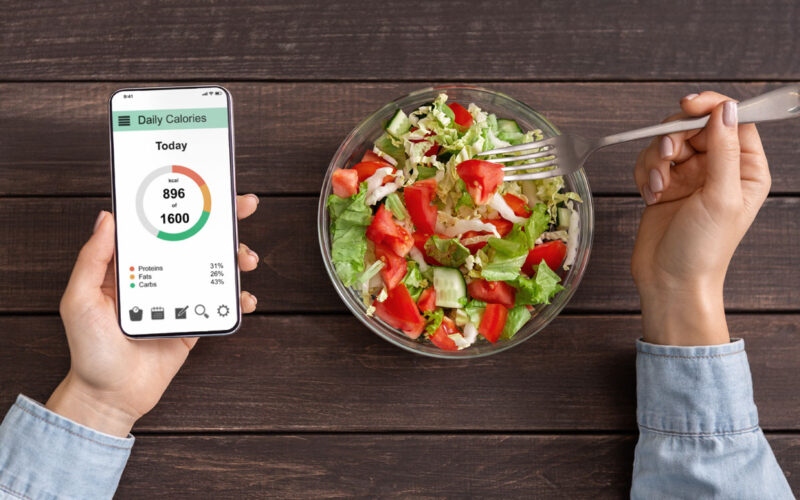We often rely on popular diet plans from the internet to reach our weight goals. But, unfortunately, diet plans take us further from our goal weight.
A diet, plan, or other fast fix is typically the first thing that comes to mind when someone has a specific objective in mind for themselves. But, unfortunately, that has been everyone’s default setting for far too long.
But you will need more than diets and plans to accomplish and maintain that aim. Let alone assist you in forming durable habits. Instead, they go in the exact other direction. Read on to uncover why diet is not helpful in the long term and how it can take us farther from our weight goals.
Have you ever wondered about your previous experiences with diet plans?
We all have tried trending diet plans followed by influencers at least once. And we also know how they did not work for us, so you ended up following another one.
After following one diet plan and failing to reach our desired weight goals, we frequently switch to another one hoping it would be more successful. For instance, a diet program might have guaranteed you will lose 5 kg of weight in just 15 days. Say you did and got the desired outcomes, but they were temporary, and you soon returned to your old state. After discovering that the first diet didn’t work, you try another one, perhaps for 30 days.
Diet plans provide quick fixes so you can see results immediately, but they don’t help you make the long-term behavioral changes necessary to ensure that your results stick around.
Why aren’t physical results the best targets to set?
Being overly concerned with getting a specific thing done in a certain amount of time sets you up for failure for a few different reasons.
You will undoubtedly feel unsatisfied if you do not reach your weight objective in the allotted time, which may diminish your self-esteem and confidence and even leave you feeling inadequate.
Even if you achieve your desired weight, you soon realize that the shortcuts and techniques you employ aren’t sustainable for you over the long term. Or perhaps you’re truly miserable because of the manner you’re eating.
When you follow a plan, you must adhere to guidelines that include avoiding particular meals, tracking calories, measuring your portions, and other constrictive, unsustainable activities. Nevertheless, if you utilize unsustainable and restrictive practices to lose weight, you won’t be able to keep it off.
How does following diet plans put in an endless cycle of dieting?
Plans and diets are temporary solutions. The idea that you ought to or can adhere to such stringent rules every day of the year is absurd.
If you’ve ever tried a diet, you’ve probably already understood how unsustainable restrictive eating patterns are. Even if you succeeded in accomplishing what you wanted, you could not keep it up. Your body’s response does not necessarily indicate that you are suddenly eating poorly or misbehaving. Most of the time, this shows that your dieting-related eating habits are too rigid. These thus contributed to your accelerated and unsustainable weight loss.
So, your body may be gaining weight to replenish the nutrients it has lost. However, your body is trying to warn you that what it experienced wasn’t suitable.
Yet regrettably, when people perceive weight gain, it can make them feel guilty about eating or ashamed for not losing weight in the first place or for gaining weight. As a result, you might decide to try another diet or plan, declaring this one your last because the last one didn’t work.
It is clear how simple it is to become caught up in this loop. You can never find what sustains you over the long run when you get caught in this loop. So you’re always looking for quick fixes. You might carry on in this manner for months or even years. You’ll eventually realize that you failed to reach or sustain your aim.
Creating objectives that put your nutrition first
You will only be able to keep it and get further away from your objectives if you focus on creating an eating pattern that you can effortlessly incorporate without feeling constrained or worried.
Instead of concentrating on the physical results, you focused on creating supporting dietary habits. Aim to feel balanced and practice patterns that are compatible with your life. These adjustments will be long-term maintainable. Doing this allows you to establish the consistency and comfort you need around food to take the best possible care of yourself.
A few positive nutrition objectives to strive towards include enjoying feeding yourself well, resisting the need to follow diets or fads, ceasing to worry or obsess about food, feeling as though your eating habits come naturally and without effort, etc.
Create long-lasting changes that make your unique well-being as a priority.
Decide to adopt a sustainable strategy for feeding yourself healthily rather than dieting. By doing this, you may determine what works best for your body, make adjustments that endure longer than 30 days, and establish consistency. As a result, you’re more likely to achieve and keep a healthy weight that your body naturally maintains.
You don’t have to worry and be obsessed with food. Developing a positive connection with food is possible, and there is a better method to go about it. Finding the ideal balance in your diet is all it takes to achieve this!


